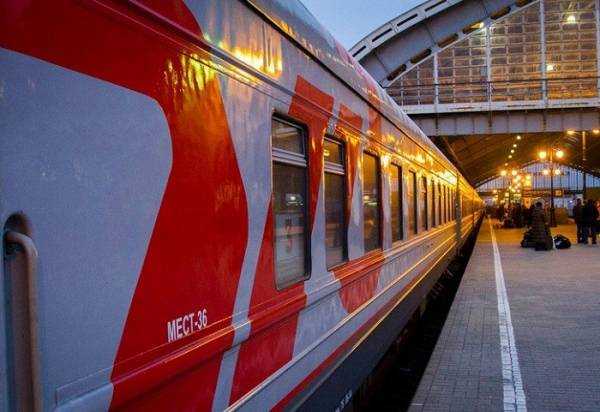Non-refundable train tickets for long-distance trains will go on sale next year, the corporate television of Russian Railways (RZD) reports, citing the company's president Oleg Belozerov, Interfax reports.

The top manager announced this at a monthly conference call. "The State Duma adopted the corresponding law on special tariffs in April. Now passengers will be able to choose to buy an expensive ticket or a cheap non-refundable one. There are no plans to introduce such tariffs in reserved seat and general carriages, where the cost of travel is regulated by the state," RZhD-TV notes.
“The law will come into force on January 1 of next year, and by that time we must build all internal mechanisms so that there are no failures, and we, first of all, provide a quality service,” said O. Belozerov in this regard, whose words are quoted by the monopoly’s television.
In April, Russian President Vladimir Putin signed a law introducing so-called non-refundable tickets for long-distance trains. The law proposes that individuals will be able to buy tickets for long-distance trains at rates that include a condition of receiving a refund of the cost of travel when returning an unused ticket, but there may also be rates that do not include such a condition.
The law stipulates that refunds for unused non-refundable tickets are only made in the event of a sudden illness of the passenger or a family member (spouse, parent (adoptive parent) or child (adopted) traveling with the passenger), death of a family member, or injury to the passenger as a result of an accident confirmed by relevant documents. This is also possible in the event of a train's departure being cancelled or delayed, or failure to provide the passenger with the seat indicated on such a ticket, the law states.
The carrier or its authorized representative is obliged, prior to concluding a passenger transportation agreement, to ensure that the passenger is informed of the possibility of purchasing a non-refundable ticket or at a rate that does not provide for such a condition.
The procedure for informing passengers about the specified opportunities to purchase travel documents will be established by the rules for the provision of services for the transportation of passengers, as well as cargo, baggage and over-the-counter baggage for personal, family, household and other needs not related to the implementation of entrepreneurial activities.
Currently, the rules for the carriage of passengers by rail do not contain provisions that grant the carrier the right to sell travel documents at rates that include a non-refundable clause.
Currently, the charter of the Russian Railways, when returning an unused ticket, provides the passenger with the right to return the travel document no later than 8 hours before the train's departure for the full cost (ticket price and reserved seat), 2–8 hours - for the full cost of the ticket and 50% reserved seat, less than 2 hours - to get back the cost of the ticket without the price of the reserved seat.
The bill was introduced to the State Duma in mid-2014. It was intended to "create conditions for reducing the cost of rail passenger transportation" and expand opportunities for people with low purchasing power to use this type of transport. Ultimately, this will increase passenger turnover and "improve the competitive position of rail transport," the Russian government hoped.
Earlier, the subsidiary of Russian Railways, Federal Passenger Company (FPC), proposed setting the cost of non-refundable tickets in compartment, SV and luxury carriages at 50% below the existing tariffs. “The main economic effect from the sale of ‘non-refundable tickets’ will be achieved by redistributing transportation from the regulated segment (reserved seat and general carriages – IF) to the deregulated one, which will allow a larger number of passengers to travel on long-distance trains in comfortable conditions,” a representative of FPC told Interfax.
Source: trn-news.ru
